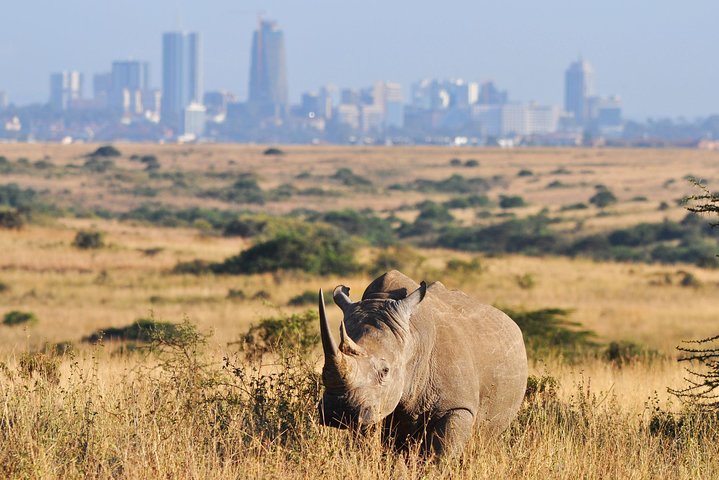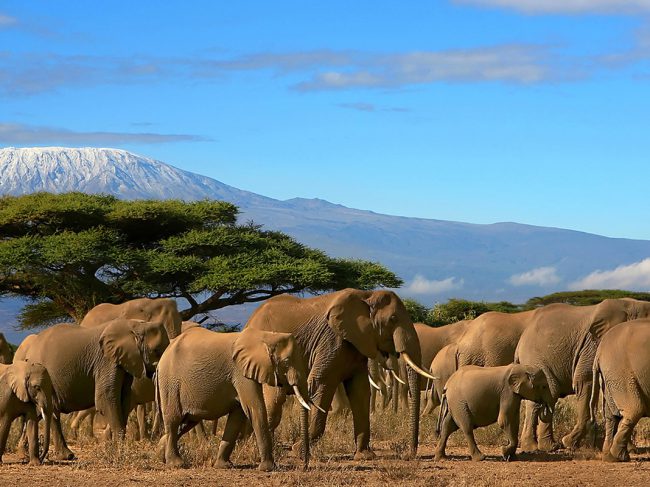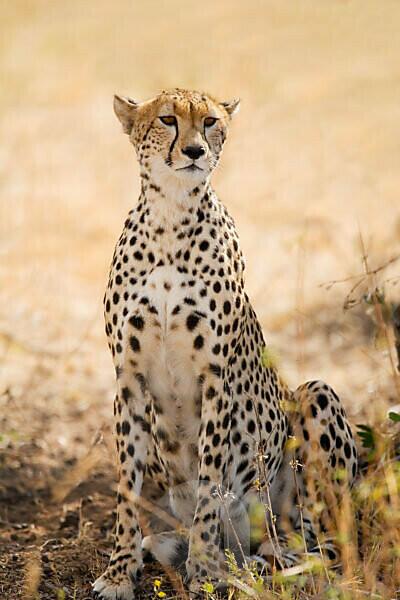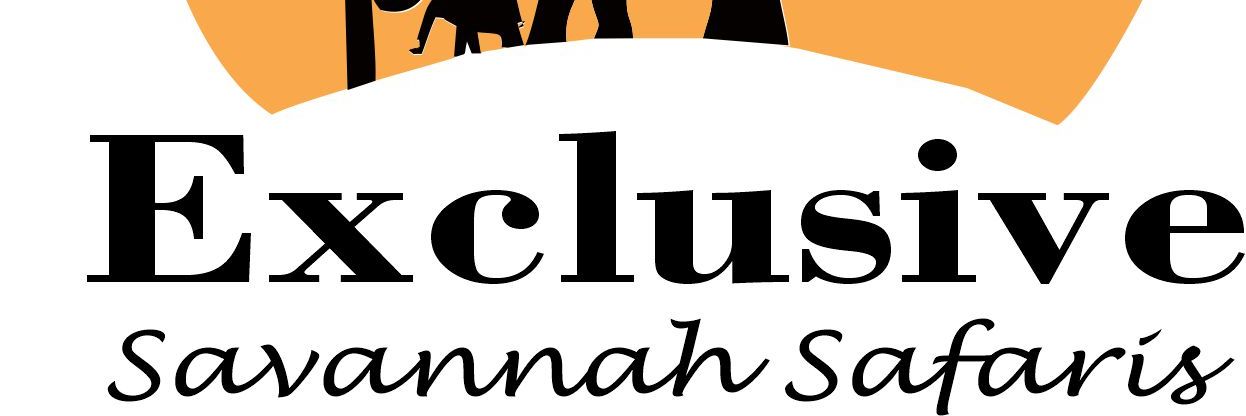Explore Kenya’s top wildlife destinations: Amboseli National Park with its iconic elephants and Mt. Kilimanjaro, Lake Nakuru home to Rothschild giraffes and rhinos, and the legendary Masai Mara, famous for its rich wildlife and the dramatic wildebeest migration. A journey into the heart of Kenya’s natural wonders.
5-Day Amboseli, Lake Nakuru & Maasai Mara Safari Tour
- Amboseli National Park is a true highlight of any Kenyan safari, offering visitors a chance to witness the majestic elephants in their natural habitat. Set against the backdrop of Mt. Kilimanjaro, the tallest mountain in Africa, the park provides incredible panoramic views. The iconic elephants, known for their massive tusks and gentle demeanor, roam freely across the vast savannah. In addition to elephants, visitors can spot a variety of wildlife including lions, cheetahs, buffalo, and numerous bird species, making Amboseli a wildlife lover's paradise.
- Lake Nakuru National Park is another standout destination, known for its breathtaking landscapes and diverse wildlife. The park is home to the endangered Rothschild giraffe and both black and white rhinos, offering rare opportunities to view these magnificent creatures up close. Lake Nakuru itself is often teeming with flocks of flamingos, creating a stunning spectacle. Beyond the lake, the park’s varied ecosystems—ranging from forests to wetlands—are home to a rich array of animals, including leopards, baboons, and over 400 bird species. The combination of wildlife and striking landscapes makes this park a must-see on any safari itinerary.
- The Masai Mara National Reserve is perhaps the most famous of all Kenya's game reserves, known for its abundant wildlife and stunning beauty. It is home to the Big Five and offers one of the most thrilling safari experiences, with game drives through endless plains and lush river valleys. One of the most famous events to witness here is the annual wildebeest migration, where millions of wildebeest and zebras cross the Mara River in search of fresh grazing. Apart from the migration, the Mara is renowned for its rich predator-prey dynamics, with lions, cheetahs, and leopards frequently spotted. The Masai Mara also offers cultural encounters with the Masai people, adding an enriching layer to the safari experience.
Experience the essence of Kenya's wildlife on a journey through three of its most famous game reserves. Begin in Amboseli National Park, where you'll see massive elephant herds against the breathtaking backdrop of Mt. Kilimanjaro. Next, visit Lake Nakuru National Park, renowned for its population of endangered Rothschild giraffes and rhinos, offering a unique opportunity to observe these rare creatures in their natural habitat. Finally, explore the iconic Masai Mara, home to a stunning variety of wildlife, including the thrilling spectacle of the wildebeest migration. This adventure is a true immersion into Kenya’s wild beauty and biodiversity.
Embark on an unforgettable safari through Kenya’s most iconic wildlife reserves, each offering its own unique experience and a chance to connect deeply with the country's natural wonders.
Your journey begins in Amboseli National Park, situated at the foot of the majestic Mt. Kilimanjaro. This world-renowned park is famous for its large herds of elephants that roam freely across the open plains, offering spectacular views with Africa’s tallest peak towering in the background. Amboseli is one of the best places to see these gentle giants in their natural habitat, and it’s a place where the raw beauty of nature comes alive in every moment.
Next, you’ll head to Lake Nakuru National Park, a UNESCO World Heritage site known for its rich biodiversity and vibrant birdlife. The park is particularly famous for being a sanctuary for the endangered Rothschild giraffes and black and white rhinos. As you explore the park's diverse landscapes—ranging from grasslands to acacia forests—you’ll encounter these rare and majestic animals, as well as a variety of other species that call the park home, including flamingos, lions, and leopards. The park’s picturesque lake adds an enchanting touch to this wildlife-rich destination.
Finally, you’ll venture into the heart of the Masai Mara, one of the most famous and biologically rich game reserves in the world. This vast savanna is home to a spectacular array of wildlife, including the “Big Five” (lion, elephant, buffalo, leopard, and rhino), and it is renowned for the annual wildebeest migration—one of the most awe-inspiring natural events on the planet. In addition to witnessing this remarkable spectacle, the Mara offers excellent opportunities for game drives, where you can spot cheetahs, zebras, giraffes, and countless other animals in their natural environment. The open plains, dotted with acacia trees and traversed by winding rivers, create the perfect backdrop for an unforgettable safari experience.
This extraordinary journey takes you through three of Kenya’s most celebrated wildlife regions, each offering a unique and immersive experience with Africa’s incredible fauna. Whether it's observing the giant elephants of Amboseli, tracking rhinos in Lake Nakuru, or experiencing the thrilling action of the Masai Mara, this adventure will leave you with lifelong memories of Kenya’s wild heart and soul.
- Private transportation in custom tour 4x4 jeep
- All meals as per itinerary
- All Accomodations as per itinerary
- International Flights
- Visa fees
- Gratuities and tips
- Balloon safaris
- Cultural village visits
- Items of personal nature
Start Location: Arrival at Nairobi JKI Airport tand proceed to Amboseli National Park
Start Location Notes: Arrival at Nairobi JKI Airport tand proceed to Amboseli Nationa
- Safari Type and Duration: Safaris in Kenya can vary greatly depending on the type of experience you're seeking. Are you looking for a luxury lodge experience, a budget-friendly camping safari, or a more immersive cultural experience with local tribes? The length of your safari will also impact your experience; 7-10 days is ideal for visiting multiple parks, but shorter trips (3-4 days) can still provide a rewarding experience. Make sure to choose a package that aligns with your expectations and time constraints.
- Group vs. Private Safaris: Consider whether you want to book a group safari or a private safari. Group safaris are usually more cost-effective and offer the chance to meet other travelers, but they may come with a fixed schedule and less flexibility. Private safaris, though more expensive, offer a personalized experience with flexibility to tailor your schedule and pace. If you're traveling with a family or a small group, a private safari may provide a more intimate experience.
- Accommodation Style: Kenya offers a range of accommodation options, from luxury lodges and tented camps to budget-friendly campsites. Some of the more upscale lodges offer all-inclusive packages that include meals, game drives, and local activities. Make sure to research your accommodation choices carefully and book in advance, especially during peak seasons (June to October) when availability can be limited.
- Travel Documents and Health Precautions: Before embarking on your Kenyan safari, make sure your visa is sorted. Most visitors will need to apply for an eVisa online or at the embassy before arrival. Additionally, it's important to get the required vaccinations, including for yellow fever, malaria, and typhoid. Since malaria is present in many areas, it's advisable to take preventive medication and use insect repellent. Ensure you have comprehensive travel insurance that covers medical emergencies, cancellations, and evacuation, as this will give you peace of mind during your travels.
- Best Time to Visit and Weather: The ideal time to visit Kenya for a safari is during the dry season, which runs from June to October. During this time, animals gather around water sources, making wildlife viewing much easier. If you're planning to witness the wildebeest migration in the Masai Mara, these months are also perfect. For those interested in bird watching or experiencing Kenya’s lush landscape, the wet season (from November to April) offers vibrant scenery but can also bring occasional rain showers. Depending on the area you visit, expect varying temperatures. For instance, Amboseli can get quite hot, especially in the afternoons, while Masai Mara and Lake Nakuru tend to have cooler temperatures, especially in the mornings and evenings.
- What to Pack and Safari Etiquette: When preparing for your safari, pack neutral-colored clothing (such as beige, khaki, or brown) to blend in with the surroundings. Comfortable sturdy footwear is essential for walking safaris, and don't forget a wide-brimmed hat and sunscreen for sun protection. If you plan to photograph wildlife, bring binoculars and a camera, but always follow park rules regarding flash photography. It’s important to respect wildlife by maintaining a safe distance and not disturbing their natural behaviors. During game drives, keep noise to a minimum to ensure a peaceful experience for both you and the animals, and always listen to your guide’s instructions for a safe and enjoyable adventure.
Cancellation Cutoff: 24 days
Cancellation Notes: Up to 60 Days before the beginning of the activity: full refund Less than 30 days before the beginning of the activity or no-show: no refund
Rate per person sharing based on 2 persons in the vehicle
| Per Person Based on 2 Pax | RETAIL PRICE |
|---|---|
| Adult (12 - 75 years) | $2,400.00 |
Booking Confirmation and Payment:
A deposit is required to secure your booking, which is typically 20-30% of the total safari cost. The balance is usually due 30-60 days before departure, depending on the operator's policies.
Payments can be made through bank transfer, credit card, or other accepted payment methods as outlined by the safari operator. Please ensure that all payments are made by the stipulated deadlines to avoid cancellation of your booking.
Cancellation Policy:
If you need to cancel your booking, the cancellation policy will depend on the time of cancellation relative to your departure date:
More than 60 days before departure: A full refund minus administrative fees.
30-60 days before departure: A partial refund, typically 50% of the total cost.
Less than 30 days before departure: No refund will be provided, and the full amount is forfeited.
Changes to Booking: Any changes to your booking (e.g., changes in dates, accommodation, etc.) may be subject to additional fees, depending on availability and the safari operator's policies.
Travel Insurance:
It is strongly recommended to purchase travel insurance that covers trip cancellation, medical emergencies, flight delays, lost baggage, and emergency evacuation. This ensures that you are protected in case of unforeseen circumstances, such as illness or travel disruptions.
Some operators may require proof of travel insurance before departure.
Liability and Responsibility:
While the safari operator takes every precaution to ensure safety, participation in the safari is at your own risk. The operator will not be liable for injuries, loss, or damage to personal property, illness, or accidents that occur during the trip, unless caused by negligence on their part.
It is the traveler’s responsibility to ensure they meet the necessary health and visa requirements for entry into Kenya. The safari operator will not be responsible for any issues arising from failure to meet these requirements.
Health and Safety:
You must follow all safety instructions provided by your safari guide, and any behavior deemed dangerous to yourself, the group, or the wildlife may result in removal from the safari without refund.
If you have any pre-existing health conditions (e.g., pregnancy, heart conditions, allergies), it is your responsibility to inform the safari operator beforehand, as this may affect your participation in certain activities.
Changes to Itinerary:
The safari operator reserves the right to make changes to the itinerary, including the route, accommodation, and game drive schedules, if necessary due to weather conditions, road closures, or other unforeseen circumstances.
While every effort will be made to ensure the original itinerary is followed, changes may be made for the safety of guests and to provide the best possible experience.
Accommodation and Meals:
Accommodation details (e.g., lodge or campsite type) are subject to availability and may be substituted with a similar option of equal quality. Accommodation upgrades or changes should be confirmed before booking.
Most safari packages include meals (breakfast, lunch, dinner), but some may exclude drinks, snacks, or certain meals, which may be at an additional cost.
Group Size and Private Safaris:
Group safari sizes may vary, with the number of participants ranging from small groups (6-12 people) to larger ones (up to 20 or more). The specific group size will be confirmed at the time of booking.
For private safaris, the number of people in your group will be agreed upon during booking. You will have exclusive use of the safari vehicle and a personalized itinerary.
Wildlife and Activities:
Wildlife sightings are never guaranteed, as they depend on natural conditions. While every effort will be made to provide the best wildlife viewing experience, the safari operator cannot be held responsible for missed sightings or lack of specific animal encounters.
Some activities (e.g., balloon safaris, walking safaris, or boat trips) may be available at an additional cost and may require pre-booking. These activities are subject to availability and weather conditions.
Force Majeure:
Neither the safari operator nor its partners will be liable for delays, cancellations, or additional costs resulting from force majeure events (e.g., natural disasters, political instability, strikes, pandemics, or other circumstances beyond the operator’s control).
Conduct and Behavior:
All guests are expected to adhere to the safari operator’s code of conduct, which includes respecting local cultures, behaving in a responsible and respectful manner, and following wildlife viewing etiquette. Any disruptive behavior may result in removal from the safari at the guest’s expense.
Smoking may be prohibited in certain areas, including vehicles and lodges, for safety reasons. Be sure to clarify any restrictions before your trip.
Environmental Responsibility:
Many safari operators are committed to eco-tourism and conservation efforts. It is important to respect the environment during your travels, including minimizing waste, conserving water, and supporting conservation initiatives wherever possible.
By booking a safari, you acknowledge that you have read, understood, and agreed to the terms and conditions outlined above.
Local Currency and Payment Methods:
The official currency of Kenya is the Kenyan Shilling (KES). While credit cards are accepted in many hotels, lodges, and larger establishments, smaller local businesses may only accept cash. It’s a good idea to carry some local currency for small purchases, tips, or visiting markets. ATMs are widely available in major cities like Nairobi, but access may be limited in remote areas. Exchange rates at airports and hotels can be less favorable, so it's better to exchange money in towns or at local banks.
Time Zone:
Kenya operates on East Africa Time (EAT), which is UTC+3. Kenya does not observe daylight saving time, so this time zone remains constant throughout the year. Be mindful of time differences if you're traveling from outside East Africa.
Electrical Outlets:
Kenya uses Type G electrical outlets, the same as the UK. Voltage is typically 240V, so make sure to bring a suitable adapter and check if your devices support this voltage. It’s also a good idea to carry a power bank if you’re going to be in remote areas where electricity might be limited.
Safety and Security:
Kenya is generally safe for tourists, especially in national parks and popular tourist areas. However, like any travel destination, it’s important to stay vigilant. Avoid walking alone in unfamiliar areas, especially after dark, and be cautious with your belongings. Always follow the advice of your tour guide regarding safety and local customs.
Wildlife Etiquette:
Kenya’s national parks and game reserves are home to a wide variety of wildlife. Always remember that these animals are wild and should be treated with respect. Do not approach animals too closely, and never attempt to feed or disturb them. Safaris are most enjoyable when animals are left to behave naturally in their environment.
Photography Tips:
Kenya’s wildlife and landscapes provide incredible opportunities for photography. Be respectful of your surroundings, especially when photographing local communities or wildlife. For animals, it's best to avoid using a flash as it can disturb them. A zoom lens can be useful for getting close-up shots without intruding on their space. If you’re planning to capture the wildebeest migration, remember to bring extra memory cards and batteries as the action can last for hours!
Travel Health:
Ensure you stay hydrated, particularly in hot areas like Amboseli, and always drink bottled or purified water. If you’re prone to motion sickness, especially during long drives or light aircraft flights to parks, consider bringing medication for relief. It’s also wise to carry anti-diarrheal medication just in case, as food and water can sometimes cause stomach discomfort, especially for those not accustomed to local conditions.
Local Cuisine:
Kenyan cuisine offers a variety of traditional dishes. Expect to try nyama choma (grilled meat), ugali (a starchy side dish made from maize), sukuma (collard greens), and chapati (flatbread). If you're staying at luxury lodges, expect a blend of local and international cuisine. Always be cautious when eating food from street vendors or local markets, especially if you're sensitive to unfamiliar food.
Mobile and Internet Connectivity:
While major towns like Nairobi and Mombasa have good mobile and internet coverage, remote areas like game reserves may have limited or no network coverage. It's best to check with your tour operator to see if your lodge offers Wi-Fi or if you need to prepare for a more disconnected experience. For emergency communication, check if your accommodations provide satellite phones or access to communication services.
Responsible Tourism and Conservation:
Kenya is committed to sustainable tourism and wildlife conservation. By booking eco-friendly safaris and supporting responsible tour operators, you help contribute to the preservation of Kenya’s natural beauty and wildlife. Many lodges and camps are involved in community development and conservation programs, so choosing a company that prioritizes these efforts makes a significant impact.
By keeping these additional details in mind, you'll have a better understanding of the practical aspects of traveling to Kenya and can ensure a smoother, more enjoyable safari experience.
Do I need a visa to visit Kenya?
Most travelers to Kenya will need a visa. Citizens of some countries can obtain a visa on arrival, while others need to apply in advance. You can apply for an e-visa online before your trip. Check the Kenyan embassy website or consult your local consulate for specific visa requirements.
What is the best time to go on a safari in Kenya?
The best time for a safari in Kenya is during the dry season, which typically runs from June to October. This is when wildlife is easier to spot as animals gather around water sources. The Great Migration in the Masai Mara also occurs from July to September, making this an ideal time to witness the spectacle. The wet season (November to May) offers fewer crowds and lush landscapes, but animal sightings can be more challenging.
What should I pack for a safari in Kenya?
Pack neutral-colored clothing (khaki, beige, olive), comfortable walking shoes, a wide-brimmed hat, sunscreen, insect repellent, and lightweight clothing for hot days, plus a fleece or jacket for cooler mornings and evenings. Don’t forget essentials like a camera, binoculars, and medications.
Is it safe to travel to Kenya?
Kenya is generally safe for tourists, especially in popular safari destinations. However, it's always a good idea to check the latest travel advisories from your government before your trip. Exercise normal safety precautions, such as safeguarding valuables and avoiding certain areas in larger cities.
How long should I stay on safari in Kenya?
A typical safari in Kenya lasts 5-7 days, allowing you to visit a few major parks like the Masai Mara, Amboseli, and Lake Nakuru. If you want a more relaxed trip, consider a longer stay to explore more parks or take part in other activities like cultural experiences or beach relaxation.
Can I see the Big Five in Kenya?
Yes, Kenya is home to the Big Five (lion, leopard, elephant, buffalo, and rhino). The Masai Mara, Amboseli, and Lake Nakuru National Park are some of the best places to spot these iconic animals. Keep in mind that sightings are not guaranteed, as wildlife behavior can be unpredictable.
- Duration: 5 hours - 6 hours
- Trip difficulty: Moderate
- Category: Tours & Sightseeing










